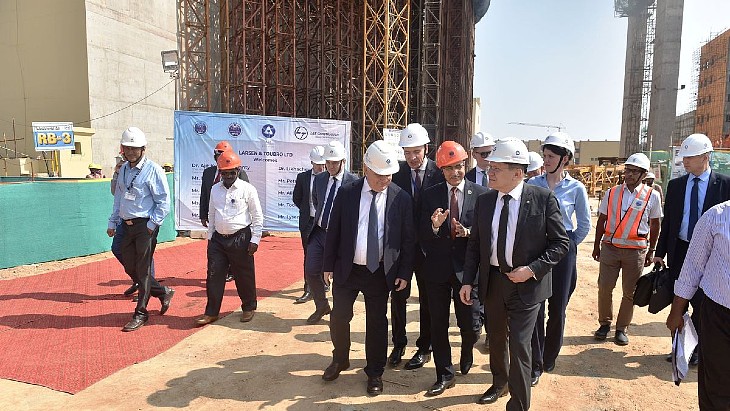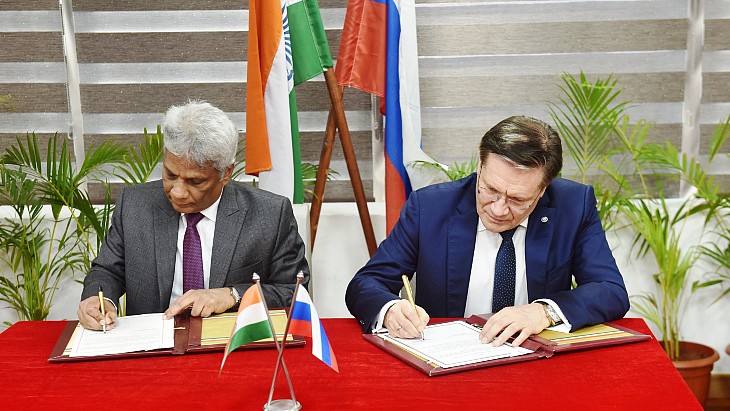

A new protocol to the intergovernmental agreement on the construction of the Kudankulam nuclear power plant was signed during a two-day visit by Rosatom Director General Alexei Likhachev to the Indian plant.

Rosatom described the protocol as an "important document" finalised following negotiations which took place during the visit by Likhachev and Ajit Kumar Mohanty, Chairman of India's Atomic Energy Commission and Secretary of its Department of Atomic Energy.
The department said of the visit that the two men "held a bilateral meeting to review the progress of the construction of Kudankulam units 3 to 6. They expressed satisfaction on the operating performance of units 1 and 2. They also discussed ways and means to expedite the ongoing construction of units 3 to 6. Both the delegations also discussed strengthening ties in other areas of civil nuclear cooperation". It added that on 8 February, the two "signed the amendment to the Intergovernmental Agreement of 2008".

(Image: India's Department of Atomic Energy)
In a statement published by the Russian nuclear corporation, Likhachev said: "I ndia is our strategic partner. Russian-Indian cooperation in the nuclear field has deep roots; the first intergovernmental documents on Indian nuclear power plants of Russian design were signed back in the 1980s. At the end of last year, we celebrated a wonderful joint anniversary - 10 years since the first power unit of the Kudankulam NPP was connected to the power grid of the Republic of India. We continue to work on joint projects in various areas of the use of nuclear energy and are optimistic about the further expansion of cooperation."
Kudankulam, about 100 kilometres from the port city of Tuticorin in the state of Tamil Nadu at the southern tip of India, is already home to two operating Russian-VVER 1000 pressurised water reactors: Kudankulam 1 has been in commercial operation since 2014 and Kudankulam 2 since 2017. Four more VVER units are currently under construction in two phases: construction of units 3 and 4 began in 2017, with work on units 5 and 6 beginning in 2021. Two further units - Kudankulam 7 and 8, AES-2006 units with VVER-1200 reactors - have been proposed as the fourth phase of the plant. The general contractor for the project is Rosatom subsidiary Atomstroyexport.
In December, India's Minister of External Affairs Subrahmanyam Jaishankar and Russia's Deputy Prime Minister Denis Manturov signed three agreements relating to Kudankulam as well as a memorandum of understanding on cooperation in pharmaceuticals and healthcare.
India has large-scale expansion plans for nuclear energy. On Wednesday, in a written reply to a question in the Lok Sabha, the lower house of the Indian parliament, Union Minister Jitendra Singh said it planned to increase its installed nuclear generating capacity from the current 7480 MWe to 22,800 MWe by 2031-32. He said in order to increase nuclear's share of India's electricity generation the government has approved the construction of ten indigenous 700 MWe pressurised heavy water reactors, created the Indian Nuclear Insurance Pool, amended the Atomic Energy Act to enable joint ventures of public sector companies to set up nuclear power projects, and entered into agreements with foreign countries for nuclear power cooperation, including supply of fuel.